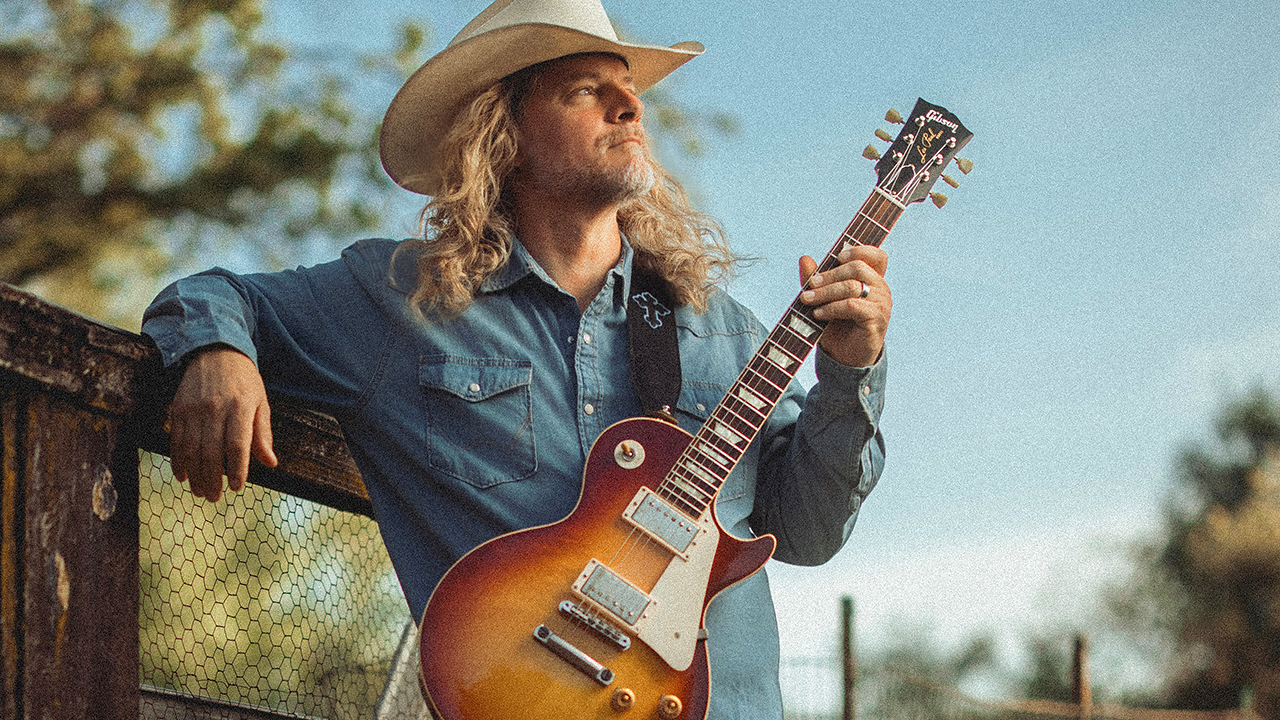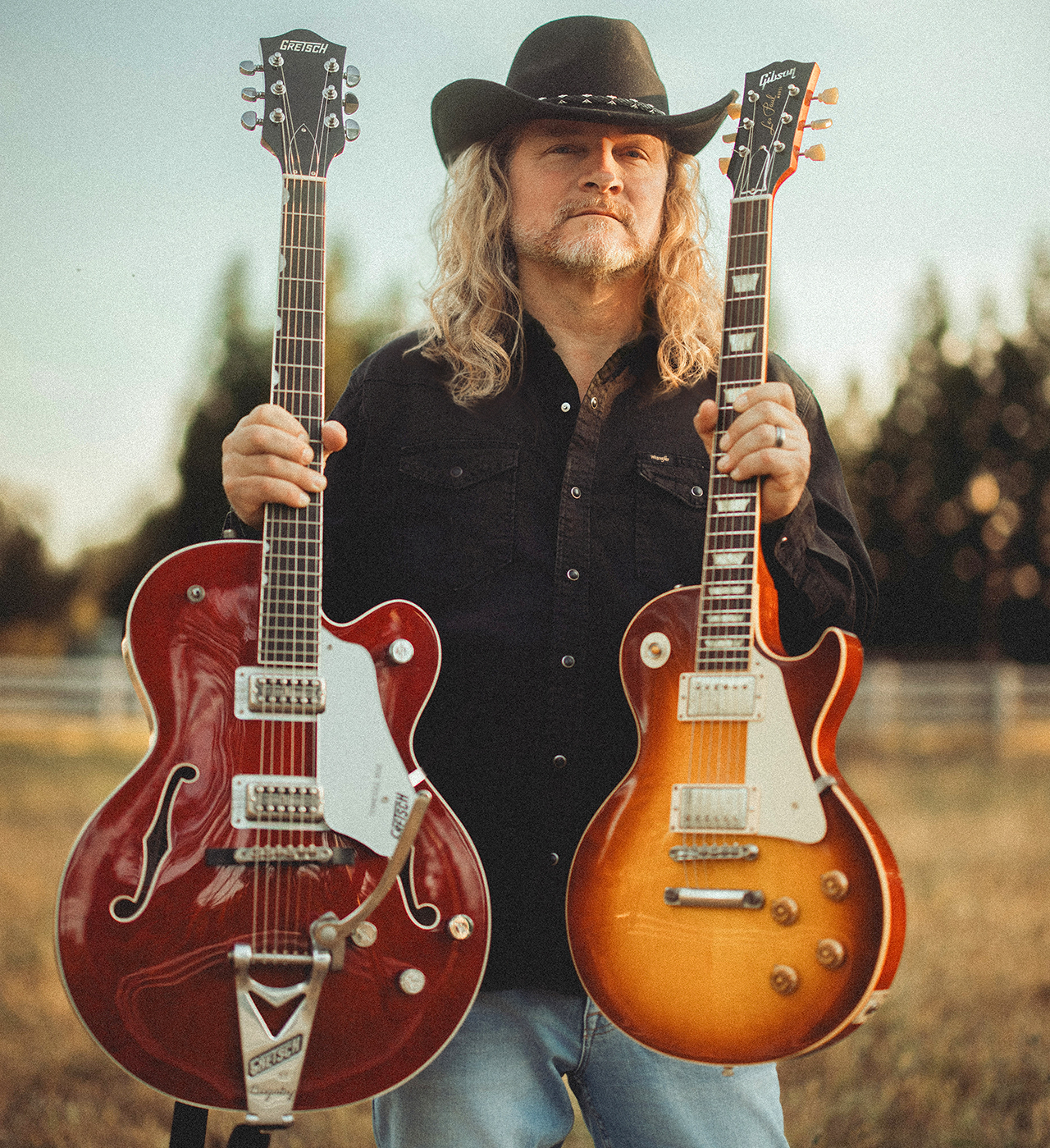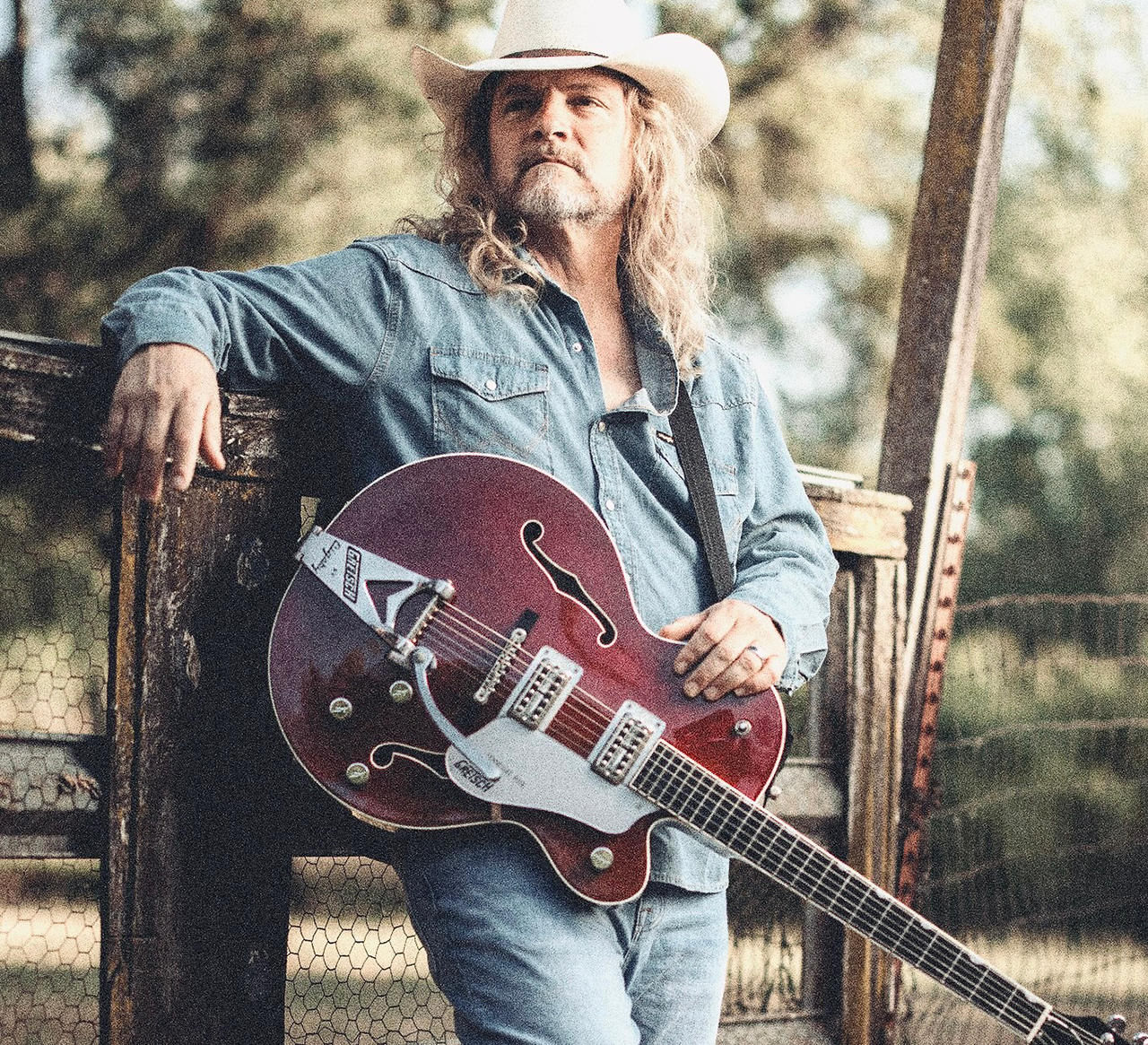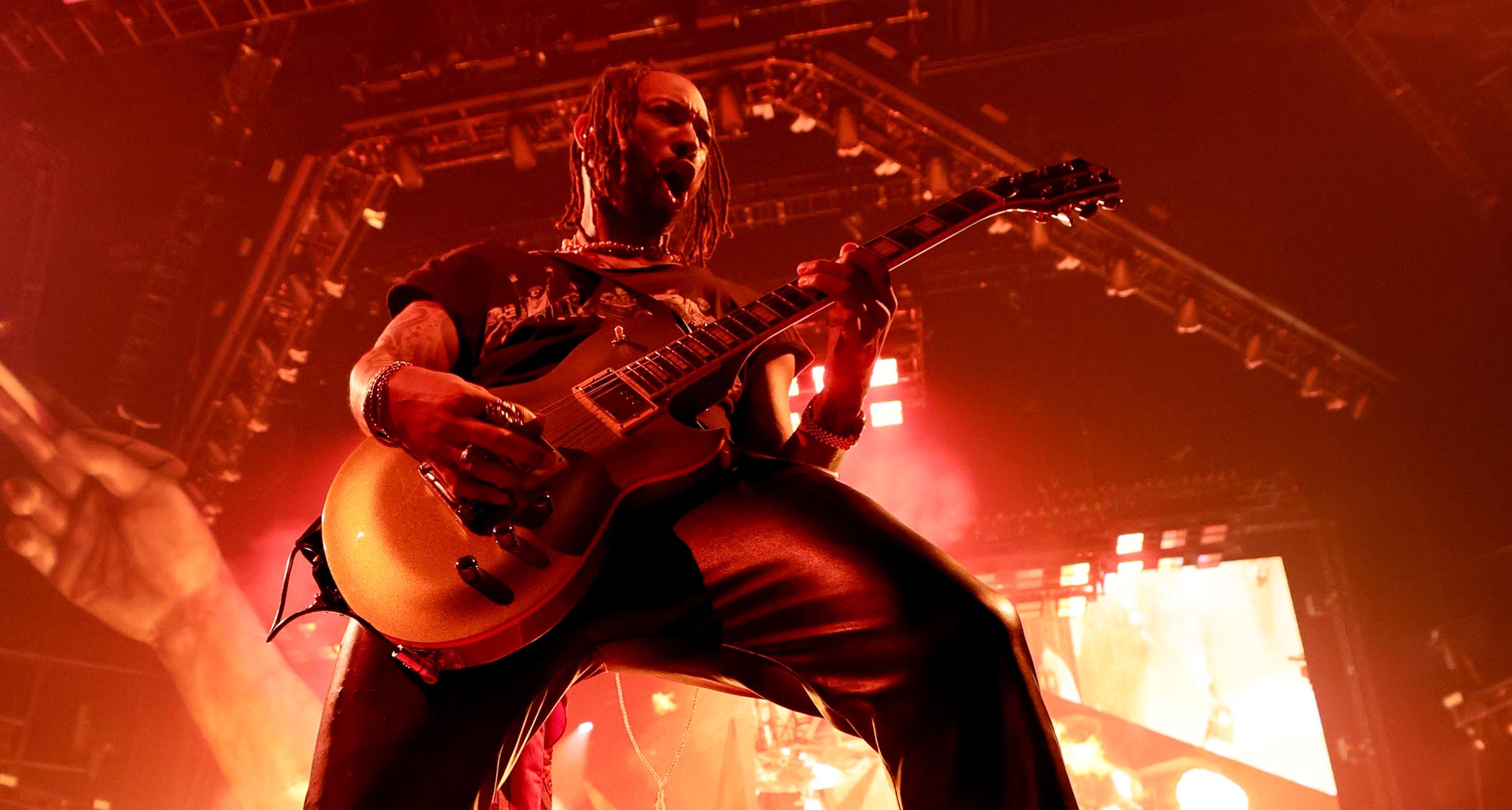“Dickey came to one of the shows. He whispers, ‘Hey, is that the guitar I loaned you?’ I said, ‘Yes, sir.’ He goes, ‘Good. Use it for as long as you want’”: Frank Hannon on how guitar instrumentals helped him grieve father-in-law Dickey Betts
How the Tesla guitarist wound up with the Allman Brothers legend’s Gibson prototype on permanent loan, and why it features alongside a Brian Setzer Gretsch on new solo album Reflections

All the latest guitar news, interviews, lessons, reviews, deals and more, direct to your inbox!
You are now subscribed
Your newsletter sign-up was successful
Frank Hannon is known for his ’80s rock stylings with Tesla, but he’s not leaning into those sounds on Reflections, his new instrumental album, which has more of a Western tinge to it. “I started taking my guitar playing to another level of simplicity – slowing down and trying to express myself,” he explains.
He was influenced by a series of personal losses, including that of his father-in-law, Dickey Betts. “I was feeling that,” he says. “and also, a few friends had passed away, along with the pain my wife and I were going through.”
That’s when he recalled what Betts had taught him. “He obsessively and intently put 100 percent into everything he did. One of his quotes to me was: ‘Keep on swinging.’”
That matched one of Hannon’s own: “Play guitar like you’ll never play again.” He reflects: “If you leave the planet before you expected, leave something behind that you feel genuinely represents your heart.”
Reflections showcases a different style than you’re known for.
“Western-sounding guitar, country influences and simple chord changes have always been a part of my input to Tesla, as seen in songs like What You Give. But since this is an instrumental album, I was tapping into the guitar being a lead voice.”
How did the loss of Dickey Betts, impact your process?
All the latest guitar news, interviews, lessons, reviews, deals and more, direct to your inbox!
“Coming from the West Coast in the ’80s, I wasn’t really influenced by Dickey until I met him 24 years ago, and we became family. His influence really wasn’t through the guitar – it was as a person, a survivor, and his stories.
“When we went golfing, we’d be laughing in the truck, talking about scenarios he’d gone through and survived, the integrity that he put into his music, and how he made every note count in his playing.
“Now that I’ve studied it more – even compared to Duane Allman, who always said he was the famous guitar player – Dickey was the great one. Even if he played a lot of notes, you could hear every single one. They all had a purpose.”

How did you apply that to Reflections?
“I stopped noodling the intention into my notes. With instrumental music, I’ve learned to slow down and play with the intent of expressing myself.”
What’s the story behind the Gretsch on the cover?
“It’s a Hot Rod model, and it’s blue or purple, depending on the light. The body is a little smaller than the Falcon, and it resonates really cool. It actually belonged to Brian Setzer, who donated it to the Hard Rock Cafe then one of my good friends, Don, who passed away, had it.
“I was telling him how much I love Brian Setzer’s playing. Don said, ‘Let me give you this guitar, rather than having it hang on the wall at the Hard Rock.’ It’s one of my favorite guitars – it has a really distinctive tone.”
You also used one of Dickey’s Gibson SGs.
“I was going to a jam at a bar in Florida and I grabbed the SG that was sitting in the living room. Dickey was on the couch and I said, ‘Do you mind if I borrow this guitar?’
“Dickey was funny, man – he had such a serious look. I thought he wanted to kick my ass! He could look at you like he was pissed, then in a split-second smile and make you feel like a million bucks!
“He was looking at the SG then looking at me for a couple of minutes straight. Then he goes, ‘No.’ I go, ‘What do you mean?’ He goes, ‘That’s not the good one. Go in the bedroom and grab the good one!’
“I went into the bedroom, grabbed the other one and he goes, ‘Yeah, take that one. But cherish it – don’t let nothing happen to it because it’s a great one.’”
What makes that SG so great?
“It was his Dickey Betts From One Brother to Another prototype; number one, the first prototype Gibson made. It weighs like six pounds. It’s light as a feather, the neck is super-slim, and it stays in tune really great. It’s got nylon saddles on the bridge so it has a warmer tone.

“So I used it at that jam. Fast forward a couple of years, and I was going on the road with Devon Allman and Duane Betts for the Allman Family Reunion Revival, and I borrowed the same SG for that.
“Dickey came to one of the shows – his 80th birthday in Sarasota, Florida. He whispers, ‘Hey, is that the guitar I loaned you?’ I said, ‘Yes, sir.’ He goes, ‘Good,’ and he gave me the thumbs up, and a hug. He said, ‘You can use it for as long as you want.’ So I’m still borrowing it. It means a lot to me and to my heart.”
Is there a song from Reflections that best represents what you wanted to communicate?
“There’s two. One is called Our Father’s Love. The main theme has a spiritual vibe that I was feeling when my wife and I were looking up at the stars, thinking about our pain and grief. She was really close to her dad. The melody is about being grateful for being alive.
“This Is Goodbye is the last song on the record – it's probably going to be the single. The melody is very contemplative and simple, where you take a simple chord, and then pick the notes in between, like I did on What You Give by Tesla. People said This Is Goodbye could be in a soundtrack for a Western movie.”
What’s next for you?
Tesla is still very busy, and then there’s my solo shows. I want to keep using guitar as my singing voice. I’ve tried to sing; playing guitar is a lot more fun!”
- Reflections is on sale now.
Andrew Daly is an iced-coffee-addicted, oddball Telecaster-playing, alfredo pasta-loving journalist from Long Island, NY, who, in addition to being a contributing writer for Guitar World, scribes for Bass Player, Guitar Player, Guitarist, and MusicRadar. Andrew has interviewed favorites like Ace Frehley, Johnny Marr, Vito Bratta, Bruce Kulick, Joe Perry, Brad Whitford, Tom Morello, Rich Robinson, and Paul Stanley, while his all-time favorite (rhythm player), Keith Richards, continues to elude him.
You must confirm your public display name before commenting
Please logout and then login again, you will then be prompted to enter your display name.


